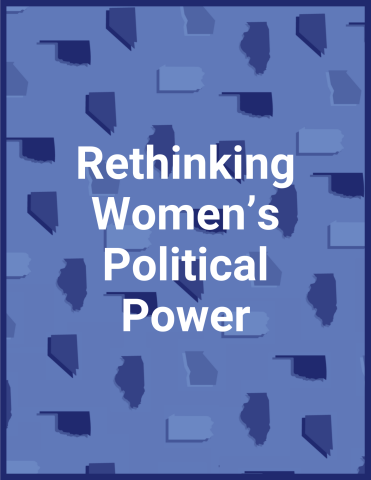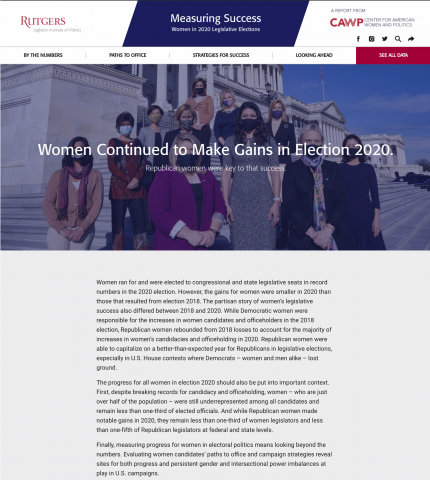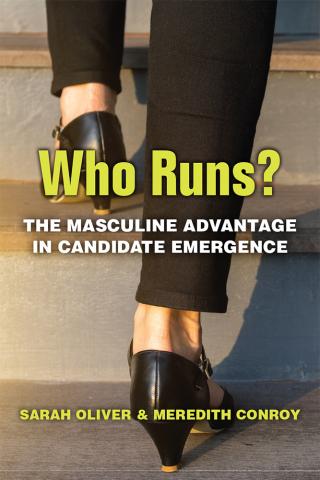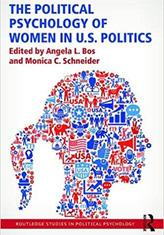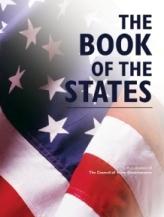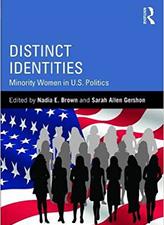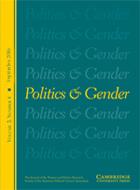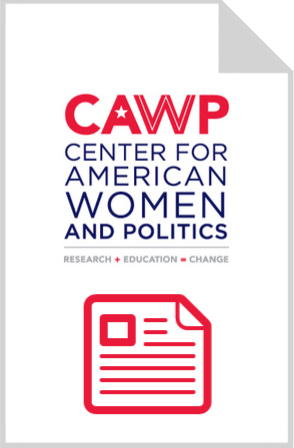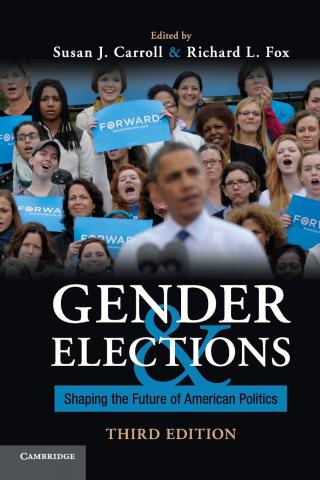Rethinking Women’s Political Power
by Kelly Dittmar, Ph.D.
ReportResearchCandidate RecruitmentCandidates and CampaignsWomen Voters and the Gender GapWomen and Term LimitsGender and Race/EthnicityElective OfficeCongressStatewide ExecutiveState LegislatureLocalMeasuring Success: Women in 2020 Legislative Elections
by Kelly Dittmar
ReportResearchPolitical PartiesCandidates and CampaignsCandidate RecruitmentGender and Race/EthnicityState LegislatureCongressWho Runs? The Masculine Advantage in Candidate Emergence
by Sarah Oliver, Towson University and Meredith Conroy, California State University, San Bernadino
University of Michigan Press, 2020, 168 pagesBookResearchCAWP Series in Gender and American PoliticsCandidates and CampaignsCandidate RecruitmentCandidates Matter: Gender Differences in Election 2016
by Kelly Dittmar, Ph.D.
Fact SheetResearchCAWP ScholarA Closer LookPolitical PartiesCandidates and CampaignsCandidate RecruitmentGender and Race/EthnicityState LegislatureStatewide ExecutiveCongressWomen’s Decisions to Run for Office: A Relationally Embedded Model
by Kira Sanbonmatsu and Susan J. Carroll
Book chapter in The Political Psychology of Women in U.S. Politics, edited by Angela L. Bos and Monica C. Schneider (New York: Routledge, 2016)Book ChapterResearchCAWP ScholarCandidates and CampaignsCandidate RecruitmentState LegislatureWomen in State Government: Still Too Few
by Susan J. Carroll
in The Book of the States, Vol. 48 edited by The Council of State Governments (Lexington, KY: The Council of State Governments, 2016).ArticleResearchCAWP ScholarCandidate RecruitmentWomen Political AppointeesImpact of Women Public OfficialsState LegislatureStatewide ExecutiveOfficeholding in the Fifty States: The Pathways Women of Color Take to Statewide Elective Executive Office
by Kira Sanbonmatsu
Book chapter in Distinct Identities: Minority Women in U.S. Politics, edited by Nadia E. Brown and Sarah Allen Gershon (New York: Routledge Press, 2016)Book ChapterResearchCAWP ScholarCandidates and CampaignsCandidate RecruitmentGender and Race/EthnicityStatewide ExecutiveEncouragement is not Enough: Addressing Social and Structural Barriers to Female Recruitment
by Kelly Dittmar
Politics & Gender 2015 (December)ArticleResearchCAWP ScholarCandidate RecruitmentWhy Not a Woman of Color?: The Candidacies of US Women of Color for Statewide Executive Office
by Kira Sanbonmatsu
Oxford University Press (September 2015)ArticleResearchCAWP ScholarCandidates and CampaignsCandidate RecruitmentGender and Race/EthnicityStatewide ExecutiveWomen’s Election to Office in the Fifty States: Opportunities and Challenges
by Kira Sanbonmatsu
Book chapter in Gender and Elections: Shaping the Future of American Politics,
Eds. Susan J. Carroll, CAWP, Rutgers University and Richard L. Fox, Union College, New York
Cambridge University Press, 2013 Third Edition, pp. 265-287.Book ChapterResearchCAWP ScholarPolitical PartiesCandidates and CampaignsCandidate RecruitmentState LegislatureStatewide Executive


